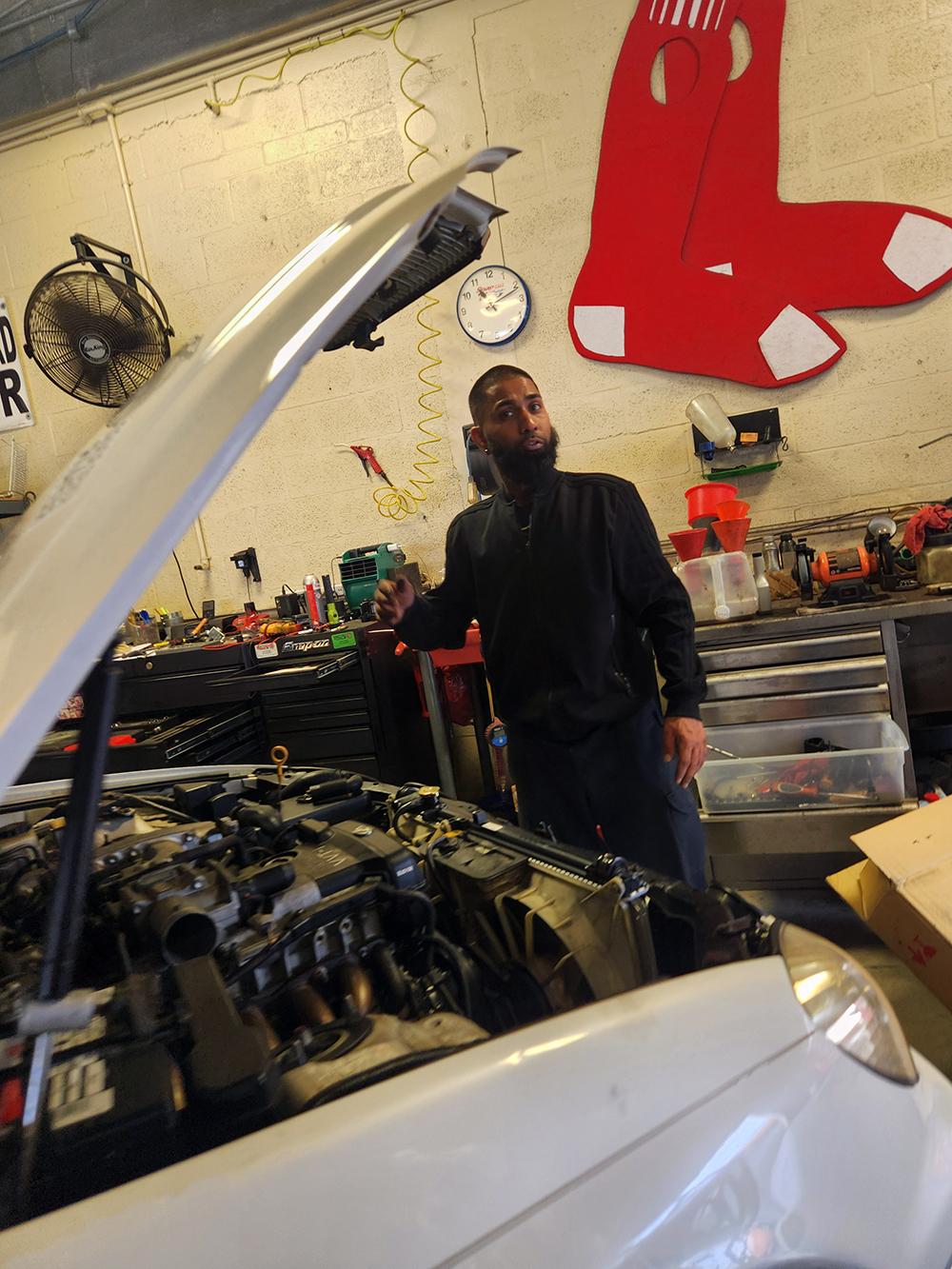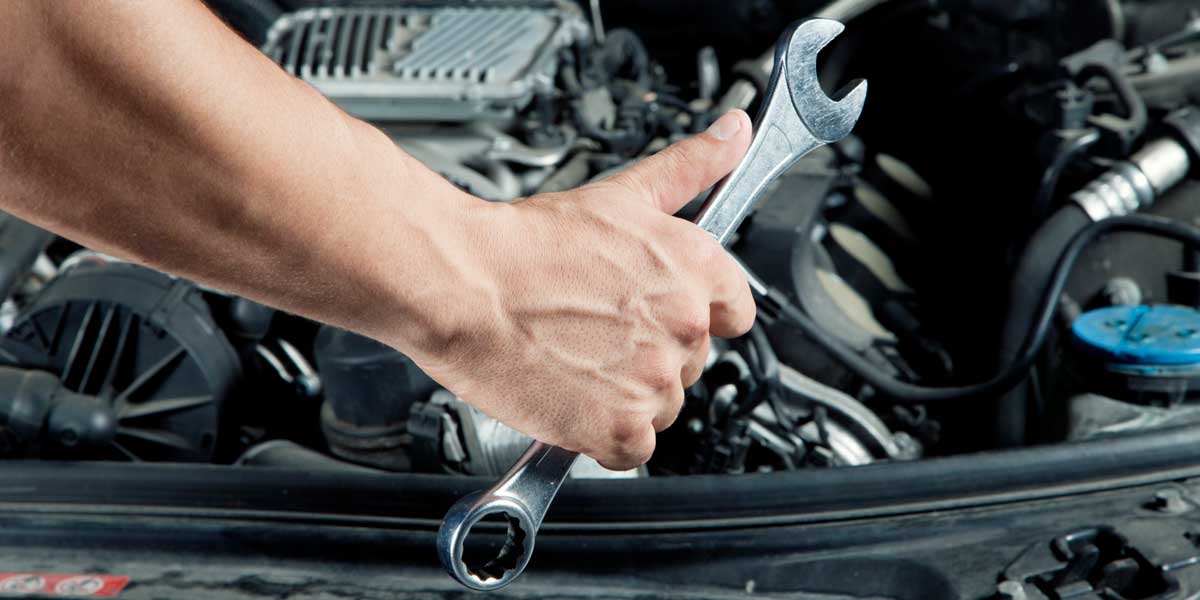All Categories
Featured
Typically ignored, the timing belt plays a crucial role in keeping your engine synchronized and operating at peak performance. In this article, we'll explore the value of timing belt substitute and why it's necessary to your engine's durability.
What Is a Timing Belt and Just How Does It Function? The timing belt is a rubber or reinforced composite belt that attaches the crankshaft to the camshaft in your engine. These 2 parts should operate in sync for the engine's valves to open and close at the correct times during the burning cycle. The timing belt regulates this synchronization, ensuring that the pistons and shutoffs do not clash.
![]()
As your engine runs, the timing belt constantly transfers to maintain these components straightened. With time, the belt goes through deterioration from warm, engine, and rubbing vibrations. If it breaks or comes to be loose, the crankshaft and camshaft will certainly no much longer be integrated, causing engine misfires, loss of power, or, in the most awful case, severe engine damages.
Why Timing Belt Replacement Is Critical. Stops Serious Engine Damage: If the timing belt breaks while the engine is running, the pistons can ram the valves, creating bent shutoffs, damaged pistons, and even a cracked engine block. This type of damages often needs pricey and substantial repairs or a whole engine substitute. Replacing the timing belt prior to it falls short is a basic and cost-efficient means to prevent such tragic repercussions.
![]()
Makes Certain Smooth Engine Procedure: A well-kept timing belt assists maintain your engine running smoothly by keeping the correct synchronization in between the crankshaft and camshaft. When the timing belt is worn or extended, the timing of the engine's valves might be off, causing engine misfires, harsh idling, or delaying. Changing the timing belt at the advised period ensures that the engine runs as it was developed to, enhancing performance and effectiveness.
Saves You Money: Although replacing the timing belt may appear like a significant in advance expense, it's much more inexpensive than the price of repairing or replacing a damaged engine. The labor associated with changing the timing belt is a lot less pricey than fixing engine components that are damaged due to a busted belt. Normal timing belt replacement can conserve you hundreds of bucks over time by stopping engine failure and costly repairs.
Stops Unanticipated Break Downs: If your timing belt breaks suddenly while you're driving, it can leave you stranded and call for costly towing. In the worst cases, it can cause a total engine failure that renders your automobile inoperable. By replacing the timing belt according to the manufacturer's guidelines, you minimize the threat of abrupt malfunctions and guarantee your vehicle remains trusted throughout day-to-day driving and lengthy journeys.
When Should You Replace Your Timing Belt? The timing belt does not last permanently, and its replacement timeline can differ depending upon the make and design of your automobile. Many suppliers advise replacing the timing belt every 60,000 to 100,000 miles. However, it is essential to consult your vehicle's owner's guidebook for specific standards, as some engines may require earlier or later on replacements.
If you're unclear about the problem of your timing belt, indicators that it might need replacing consist of uncommon engine sound (such as ticking or slapping audios), problem beginning the engine, or bad engine performance. A specialist mechanic can check the timing belt for wear and tear and replace it if necessary.
Final thought. The timing belt is an important part of your vehicle's engine, and its proper upkeep can save you from costly repair work and engine damages. Regularly changing the timing belt at the manufacturer's recommended periods assists guarantee smooth engine operation, stays clear of unanticipated breakdowns, and eventually lengthens the life of your engine. Do not ignore this critical upkeep job-- by remaining on top of timing belt replacement, you're investing in the lasting wellness of your vehicle.
What Is a Timing Belt and Just How Does It Function? The timing belt is a rubber or reinforced composite belt that attaches the crankshaft to the camshaft in your engine. These 2 parts should operate in sync for the engine's valves to open and close at the correct times during the burning cycle. The timing belt regulates this synchronization, ensuring that the pistons and shutoffs do not clash.

As your engine runs, the timing belt constantly transfers to maintain these components straightened. With time, the belt goes through deterioration from warm, engine, and rubbing vibrations. If it breaks or comes to be loose, the crankshaft and camshaft will certainly no much longer be integrated, causing engine misfires, loss of power, or, in the most awful case, severe engine damages.
Why Timing Belt Replacement Is Critical. Stops Serious Engine Damage: If the timing belt breaks while the engine is running, the pistons can ram the valves, creating bent shutoffs, damaged pistons, and even a cracked engine block. This type of damages often needs pricey and substantial repairs or a whole engine substitute. Replacing the timing belt prior to it falls short is a basic and cost-efficient means to prevent such tragic repercussions.

Makes Certain Smooth Engine Procedure: A well-kept timing belt assists maintain your engine running smoothly by keeping the correct synchronization in between the crankshaft and camshaft. When the timing belt is worn or extended, the timing of the engine's valves might be off, causing engine misfires, harsh idling, or delaying. Changing the timing belt at the advised period ensures that the engine runs as it was developed to, enhancing performance and effectiveness.
Saves You Money: Although replacing the timing belt may appear like a significant in advance expense, it's much more inexpensive than the price of repairing or replacing a damaged engine. The labor associated with changing the timing belt is a lot less pricey than fixing engine components that are damaged due to a busted belt. Normal timing belt replacement can conserve you hundreds of bucks over time by stopping engine failure and costly repairs.
Stops Unanticipated Break Downs: If your timing belt breaks suddenly while you're driving, it can leave you stranded and call for costly towing. In the worst cases, it can cause a total engine failure that renders your automobile inoperable. By replacing the timing belt according to the manufacturer's guidelines, you minimize the threat of abrupt malfunctions and guarantee your vehicle remains trusted throughout day-to-day driving and lengthy journeys.
When Should You Replace Your Timing Belt? The timing belt does not last permanently, and its replacement timeline can differ depending upon the make and design of your automobile. Many suppliers advise replacing the timing belt every 60,000 to 100,000 miles. However, it is essential to consult your vehicle's owner's guidebook for specific standards, as some engines may require earlier or later on replacements.
If you're unclear about the problem of your timing belt, indicators that it might need replacing consist of uncommon engine sound (such as ticking or slapping audios), problem beginning the engine, or bad engine performance. A specialist mechanic can check the timing belt for wear and tear and replace it if necessary.
Final thought. The timing belt is an important part of your vehicle's engine, and its proper upkeep can save you from costly repair work and engine damages. Regularly changing the timing belt at the manufacturer's recommended periods assists guarantee smooth engine operation, stays clear of unanticipated breakdowns, and eventually lengthens the life of your engine. Do not ignore this critical upkeep job-- by remaining on top of timing belt replacement, you're investing in the lasting wellness of your vehicle.
Latest Posts
Dependable Commercial Roofing Providers by Weathercraft
Published May 26, 25
2 min read
Safeguard and Enhance Your Home with Weathercraft's Siding Providers
Published May 23, 25
1 min read
Find the Premier Auto Repair Coupons in Montclare, Chicago
Published May 23, 25
1 min read